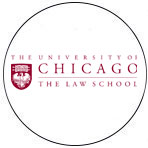
Before I became dean, I did research on the behavior of judges. We studied panels of three judges considering voting rights cases, most of which involved racial claims. Even after controlling for a variety of other background factors, we found that the presence of an African American judge affected how the white judges voted, when we compared how the white judges had voted in previous voting rights cases. We found that when there was an African American judge on the panel, the other judges were more likely to find that there was a violation of voting rights. Our conclusion was that the presence of an African American judge affected how the other two judges thought about the case – that an African American judge brought a different perspective.
Appellate judges sitting on these cases are really at the pinnacle of the legal profession and, for us, it highlighted the importance of diversity within the profession. If we don’t achieve sufficient diversity of perspectives, of thought, and of background within the legal profession, the profession as a whole will be lesser for it.
I think one of the challenges for diverse students on their pathway to law is having sufficient role models – to see that there are other individuals that have a similar background and life experiences, and can triumph along that path. That’s something that I hear very much from applicants: they wonder whether they are blazing a path that’s new or whether there are leaders who are good role models for them – and even, potentially, direct mentors.
Another challenge is the cost of higher education, particularly for professional schools. A concern that we hear from applicants is whether the cost of higher education and the loans that students sometimes take out to pay for their education constrain their career choices later on. We’ve taken a number of steps to try to alleviate that, but I do think it is a particular challenge, especially for students from traditionally disadvantaged backgrounds or first-generation professional students.
We are a relatively small law school in terms of student enrolment and we have a very tightknit community. Among law schools, we’re known for our academic approach to law, so we have an environment where the students are very much engaged on issues of law, policy and politics. They are here because they want to study the most challenging issues of our time that law has a role in resolving, and we’re committed to serious dialogue on a series of controversial and important topics.
We’ve always been a school that has cast a very wide net in our recruitment efforts. We go far and wide to find the very best students that we can – we don’t just rely on a few big-name schools, we do outreach to some lesser-known schools, because we know that there’s terrific student talent there. We’ve partnered with CLEO (Council on Legal Education Opportunity), a standalone entity that works nationwide to expand opportunities and encourage students while they’re still in high school and college to think about law school. We’ve hosted summer workshops with them for many years and we think it’s really an important endeavour.
We’ve also tried to encourage students to come to law school through expanding our scholarship programs. A graduate gave us a generous scholarship gift that is specifically targeted at students who have financial need and who are academically excellent. We have also had a series of scholarship gifts from another graduate to encourage us to find the most talented students that we can find. Both of these programs have brought a terrific and diverse set of students, in addition to our existing body of financial aid.
Once the students are here, we do a number of things to engage and prepare them for a career in which they are going to be challenged with a diverse set of clients and a variety of difficult and knotty legal challenges. We’ve instituted a number of new initiatives to encourage more dialogue among students around some of these difficult topics. For example, last year we instituted student roundtables, where two faculty members get together with a small group of students. They choose a topic of contemporary legal controversy and the two faculty members agree in advance to take opposite positions, debating in the presence of these students, and then drawing the students into the conversation. It’s a way to model and encourage serious discourse from a diverse set of views and backgrounds on really challenging issues of our time. Our students have signed up to them in record numbers – there is almost always a waiting list for one of these.
We encourage students to participate in a variety of important legal professional development opportunities. For example, one of the hallmarks of academic excellence in American legal education is participation in our Law Reviews – I always want every student to try to work on Law Review. There’s a selection process, and we have made efforts to engage in outreach to our student groups, such as our Black Law Student Association and our LatinX Law Student Association, to encourage their members to apply.
Similarly, one of the hallmarks of accomplishment for a law student is to obtain a clerkship with a judge. This is a one-year job in which a student works with a judge to help them write their opinions and execute their decisions, and it’s a really great privilege – it’s a wonderful mentorship opportunity and a real, true apprenticeship. These are very competitive jobs, they are very prestigious to get, and we have, in recent years, made a greater effort to encourage our students to seek and obtain these clerkships. We’ve made a particular effort to encourage our students from traditionally underrepresented groups to apply, and I’m very glad that, overall, our student body is obtaining them at record numbers.
Three years ago, I created a diversity committee within the law school, which consists of administrators and several faculty members – so we have a vehicle for thinking continuously about these issues, getting real-time feedback about what is helpful and what is less helpful, and generating new ideas. The committee works with the student liaison committee to have continuous contact with students and to get feedback from them about whether our initiatives and programing are successful.
The university has an office of diversity and inclusion with a set of programs, which we partner on. I think the university recognizes that whether it’s the department of history, or the law school, or the business school, each one is different – their curricular programs are different, their faculty and students are different – and they provide a helpful level of assistance to tailor the programming and the initiatives to what is right for their particular student body.
The law school recently hired a director of diversity and inclusion to work with our students. We know that students from traditionally underrepresented groups face particular challenges, and having a director to work with them within the dean of students’ office is an additional support that we provide. We’ve just filled the position, so practices are just being established, but he will be a resource for the students.
I think all law schools are attentive to these issues now. Historically, it was not the case that there was always an emphasis on this. Our university, unlike other universities, never engaged in forms of discrimination in its admissions – from the very beginning our admissions were open to women and to people of all racial and religious backgrounds. I think other universities had explicit policies of exclusion at various points in time. But I think all law schools now are attentive to diversity and inclusion, and they do it in different ways.
Our law school is very much committed to a legal education that’s intellectual and interdisciplinary, and so when we emphasize diversity, it can take two elements. One is a diverse range of experience and views, because that greater range of experiences and views and perspectives enriches the intellectual conversation about challenging legal issues. Then, when we think about inclusion, we’re seeking for students here to feel supported so that they can fully take advantage of the education we provide.
Lawyers are going to go out into the world and be the representatives, often, of the most vulnerable, or they will be representing clients in very high stakes matters and they will have to be able to operate in a challenging, effective and successful way. That’s a tall order, and so we emphasize an education that exposes them to a wide range of views and perspectives. And we provide, we hope, the support that allows them to become that professional who can handle the most challenging cases and the knottiest legal problems.


